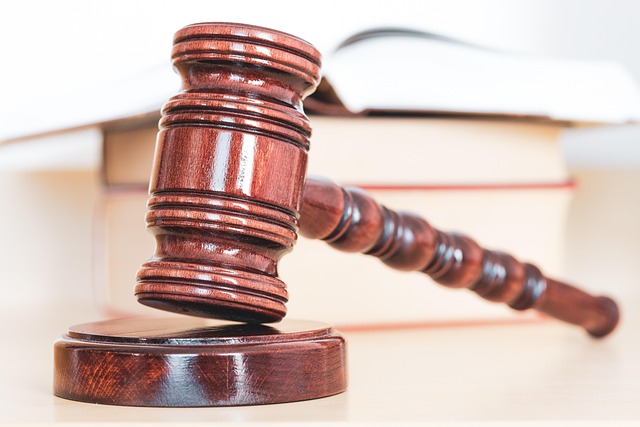Civil Law Litigation for Land Ownership Issues is a structured legal process addressing disputes related to property rights, contracts, and torts. Skilled attorneys specialize in this area, offering successful navigation of complex issues like boundary conflicts, adverse possession, and real estate contracts through meticulous research, strategic planning, and effective communication. Professional Litigation Support Services, leveraging advanced technology, streamline processes for general defense teams. This approach ensures comprehensive document review, evidence management, and strategic planning, facilitating communication between legal professionals, entities, and communities. Case studies demonstrate the proficiency of specialized services in resolving intricate land conflicts, building trust and setting precedents for future cases involving white-collar crimes. Ethical considerations and knowledge of state laws are paramount for successful outcomes.
“Unraveling the complexities of civil law litigation is key to resolving land ownership disputes, a field where professional support plays an indispensable role. This article explores the intricate world of Civil Law Litigation for Land Ownership Issues, delving into essential aspects such as understanding foundational legal principles, the significance of expert Litigation Support Services in complex cases, and key components for effective dispute resolution. We present compelling case studies, highlight best practices, and emphasize ethical considerations, offering a comprehensive guide to navigating these challenging legal landscapes.”
- Understanding Civil Law Litigation: A Foundation for Land Ownership Disputes
- The Role of Professional Litigation Support Services in Complex Cases
- Key Components of Effective Litigation Support for Land Ownership Issues
- Case Studies: Success Stories in Civil Law Litigation for Land Disputes
- Best Practices and Ethical Considerations in Providing Litigation Support Services
Understanding Civil Law Litigation: A Foundation for Land Ownership Disputes

Civil Law Litigation serves as a robust framework for resolving land ownership disputes, providing a structured legal process that ensures fairness and justice. At its core, this type of litigation is about understanding and applying laws related to property rights, contracts, and torts, which are fundamental elements in any dispute over the possession or use of land. When it comes to land ownership issues, whether involving boundary conflicts, adverse possession, or real estate contracts, Civil Law Litigation offers a comprehensive approach.
For both corporate and individual clients facing such disputes, having an unprecedented track record of success is crucial. Skilled attorneys specializing in Civil Law Litigation for Land Ownership Issues can navigate the complexities, ensuring their clients’ rights are protected. This expertise involves meticulous research, strategic planning, and effective communication to build a compelling case, ultimately leading to favorable outcomes.
The Role of Professional Litigation Support Services in Complex Cases

In complex civil law litigation, especially regarding land ownership issues, Professional Litigation Support Services play a pivotal role in navigating intricate legal landscapes. These services offer specialized expertise and resources that can significantly impact the outcome of cases. From meticulous document review and analysis to advanced evidence management, they ensure every aspect of the trial is handled with precision. In such high-stakes scenarios, where winning challenging defense verdicts is crucial for both business integrity and financial stability, having a dedicated support team can make all the difference.
By employing state-of-the-art technology and adhering to industry best practices, litigation support services streamline processes that could otherwise be overwhelming for general criminal defense teams. They cater to the specific needs of civil law cases, fostering effective communication between legal professionals and the philanthropic and political communities affected by land ownership disputes. This level of expertise contributes to robust strategic planning, ensuring every detail is considered in crafting a compelling defense strategy.
Key Components of Effective Litigation Support for Land Ownership Issues

Effective litigation support for civil law disputes related to land ownership involves several key components that can significantly impact the outcome of the case. First and foremost, meticulous document review is crucial. This includes scrutinizing legal titles, deeds, contracts, and any other relevant paperwork to establish clear ownership claims and identify potential discrepancies or disputes. Early intervention in this process can often help avoid costly mistakes and unnecessary legal battles.
Another vital aspect is expert witness preparation and strategy. Engaging experienced professionals who specialize in land law and property valuation can provide compelling evidence and expert opinions that support the client’s case. These experts can offer insights into complex legal matters, helping to navigate the intricacies of previous cases, comparable transactions, and industry standards, which are often pivotal in winning challenging defense verdicts or securing favorable settlements. This strategic approach, combined with a deep understanding of civil law litigation procedures, is essential for achieving successful outcomes, particularly in high-stakes jury trials where clear communication and persuasive arguments can make all the difference.
Case Studies: Success Stories in Civil Law Litigation for Land Disputes

In the realm of Civil Law Litigation for Land Ownership Issues, case studies serve as powerful tools to demonstrate the effectiveness of specialized legal services. These success stories highlight how strategic legal approaches can navigate complex land disputes, ultimately favoring individuals and entities involved. For instance, a recent case involved a historic land ownership debate between two families, dating back generations. Through meticulous research and an understanding of historical records, our litigation support team successfully argued in favor of their client, securing a favorable outcome that restored justice to a long-standing family legacy.
The impact of these victories extends beyond the legal realm, reaching into the hearts of philanthropic and political communities. By resolving land disputes fairly, these cases foster trust and promote sustainable relationships. Moreover, they set precedents for future similar situations, especially in the context of white collar and economic crimes, ensuring that justice is not only served but also preserved for his clients.
Best Practices and Ethical Considerations in Providing Litigation Support Services

Providing litigation support services requires a meticulous balance between best practices and ethical considerations, especially in complex cases such as civil law litigation for land ownership issues. One key practice is maintaining thorough documentation and transparency throughout the process. This includes meticulously recording all communications, evidence collection, and analyses to ensure accuracy and accountability. Attorneys and their support staff must also foster open lines of communication with all parties involved to prevent misunderstandings and miscommunications that could compromise the case.
Ethical considerations are paramount in litigation support services. Confidentiality is crucial; ensuring all sensitive information is handled securely and in compliance with legal standards. Impartiality and objectivity must also be maintained, as any perceived bias can undermine the integrity of the case. Furthermore, when navigating across the country to serve clients, it’s essential to stay updated on varying state laws and regulations that may impact the litigation strategy. Adhering to these best practices and ethical guidelines enhances the chances of achieving successful outcomes, including winning challenging defense verdicts or securing a complete dismissal of all charges.
Civil Law Litigation for Land Ownership Issues is a complex yet crucial process, and professional litigation support services play a vital role in ensuring successful outcomes. By understanding the foundational principles outlined in this article—from the intricacies of civil law to the ethical best practices—litigation support specialists can navigate these intricate disputes effectively. The case studies presented highlight real-world success stories, demonstrating the tangible impact of skilled support. As the field evolves, adhering to key components and maintaining high ethical standards will continue to be essential in resolving land ownership conflicts efficiently and justly.






